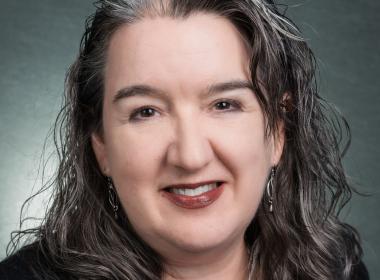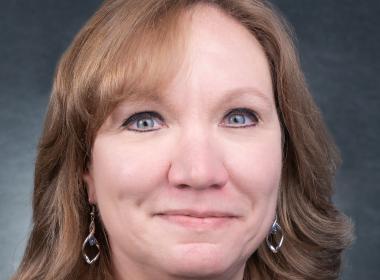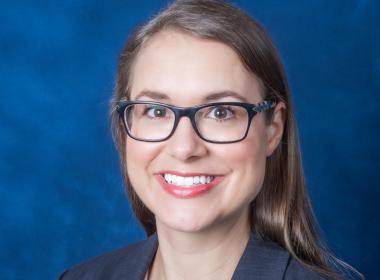The Esophageal Atresia Program at Connecticut Children’s cares for babies and children with esophageal atresia (EA), tracheoesophageal fistula (TEF), and associated conditions. Our experienced, multidisciplinary team provides a complete spectrum of care throughout your child’s EA journey, from birth through young adulthood.
With the right care, your child can live a full life with esophageal atresia. Our patient families take comfort in knowing our team has years of experience diagnosing and treating EA and TEF. We are dedicated to providing the best surgical care and helping children with EA learn to eat and grow. We will be there to help guide and support you and your child through any other medical or developmental issues that arise.

What are esophageal atresia and tracheoesophageal fistula?
Esophageal atresia is a rare condition in which the esophagus (the tube that joins the mouth to the stomach) does not connect to the stomach. This creates a blockage that prevents food and liquids from getting to the stomach. Babies born with EA need surgery soon after birth to fix the problem.
Many babies with EA also have TEF. This is an abnormal connection between the trachea (windpipe) and the esophagus. Normally, these tubes are side-by-side and separate from each other during development in the womb. But when a baby has TEF, part of the esophagus is connected to the trachea and most times the first part of the esophagus (from the mouth) does not connect with the second part of the esophagus (esophagus leading to the stomach) which prevents food and liquids from getting from the mouth to the stomach.
Babies born with EA and TEF are usually identified on prenatal tests. After birth they may experience breathing problems, feeding problems, drooling, coughing, and choking.
Why Choose Connecticut Children's Team?
We understand that every child with EA is unique. That’s why we personalize your care to meet your child’s individual needs, with the expertise to diagnose and treat even the most complex and severe cases. Our dedicated team of specialists will work with you and your family to provide a comprehensive, team-based approach that focuses on the specific needs of your child.
Here are just a few more reasons why families choose Connecticut Children’s for EA care:
No matter how complex your child’s needs are, our highly experienced team offers the most innovative procedures and treatments for all types of EA, including the Foker procedure for long gap EA as well as minimally invasive repairs and standard routine repairs.
Our clinicians are researchers, too. Our innovative team is always looking at ways to improve treatment for kids with EA, including new surgical options. We are leading a multi-phase, multi-institutional study aimed to better understand current practice and disease in esophageal atresia surveillance while ultimately developing evidence-based practice guidelines to steer future practice. We are proud members of the Eastern Pediatric Surgery Network (EPSN), a group of pediatric surgeons dedicated to establishing best practices and improving outcomes for children who need surgery. Two current studies we are leading for EPSN include:
- Long gap EA study: Current options for surgical repair include delayed primary repair, the Foker procedure and other traction techniques, and esophageal replacement. This EPSN study is a retrospective and prospective data registry aimed at describing patient characteristics, management strategies and outcomes after surgical repair of long-gap esophageal atresia.
- Esophageal atresia surveillance: Esophageal atresia is a congenital anomaly that affects one in 3,500 live births and is often associated with an increased cancer risk. Therefore, early screening interventions are necessary to identify, treat and prevent disease.
From prenatal consults, post-birth, and through young adulthood, we can provide all the care and services your child may need as they grow. Our multi-disciplinary team includes every expert your child may need throughout their EA journey, including needs including gastroenterology (GI), pulmonology, otolaryngology (ENT), nutrition, speech language pathology (SLP), genetics, and social work. We will also provide care for any associated conditions such as motility problems, heart conditions, VACTERL syndrome and colorectal problems such as imperforate anus.
Our Long-Term Esophageal Surveillance Program will monitor your child to keep them healthy as they grow. We know that children with EA have an increased risk of esophagitis and, in rare cases, esophageal cancer. We’ve developed protocols and algorithms for lifelong care to find and treat these problems early.
Whether you live in Connecticut or greater New England, our coordinated clinic visits and combined surgeries make it easy for families to receive care from many specialists in one visit. For added convenience, our team also provides outpatient care at our satellite clinics or via telehealth.
Frequently Asked Questions
EA occurs due to abnormal esophageal development during pregnancy. The cause is unknown, but genetic and environmental factors may play a role.
EA is rare, occurring in about 1 in 3,500 newborns. It is often associated with VACTERL syndrome, affecting multiple body systems.
It may be detected before birth on ultrasound. After birth, X-rays, fluoroscopy or bronchoscopy confirm the diagnosis.
TEF is an abnormal connection between the esophagus and trachea, causing food and liquids to enter the airway. Surgery is required to correct this.
Yes, children with EA may need feeding therapy, reflux management and ongoing esophageal monitoring to prevent complications.
Yes! With proper medical care, children with EA can thrive and lead full, active lives.
Connecticut Children’s Esophageal Atresia Program is a regional leader in EA and TEF treatment, offering advanced surgical care and lifelong support.
Schedule an Appointment
Call 860.545.9520 to schedule an appointment and learn more about our Esophageal Atresia Program.
Resources for Patients and Families
If you’re the parent of a child with EA, you may have many questions and concerns. Your care team at Connecticut Children’s will be with you every step of the way to provide guidance and support. Please reach out to a member of your team whenever you have questions or concerns. We understand that some parents may also want to learn more about EA on their own or connect with other families living with the condition. Here is a list of programs that you might find helpful.
Our Team

Nicole Murray, MD

Christine Finck, MD, FACS
- Specialty
- Pediatric Surgery

